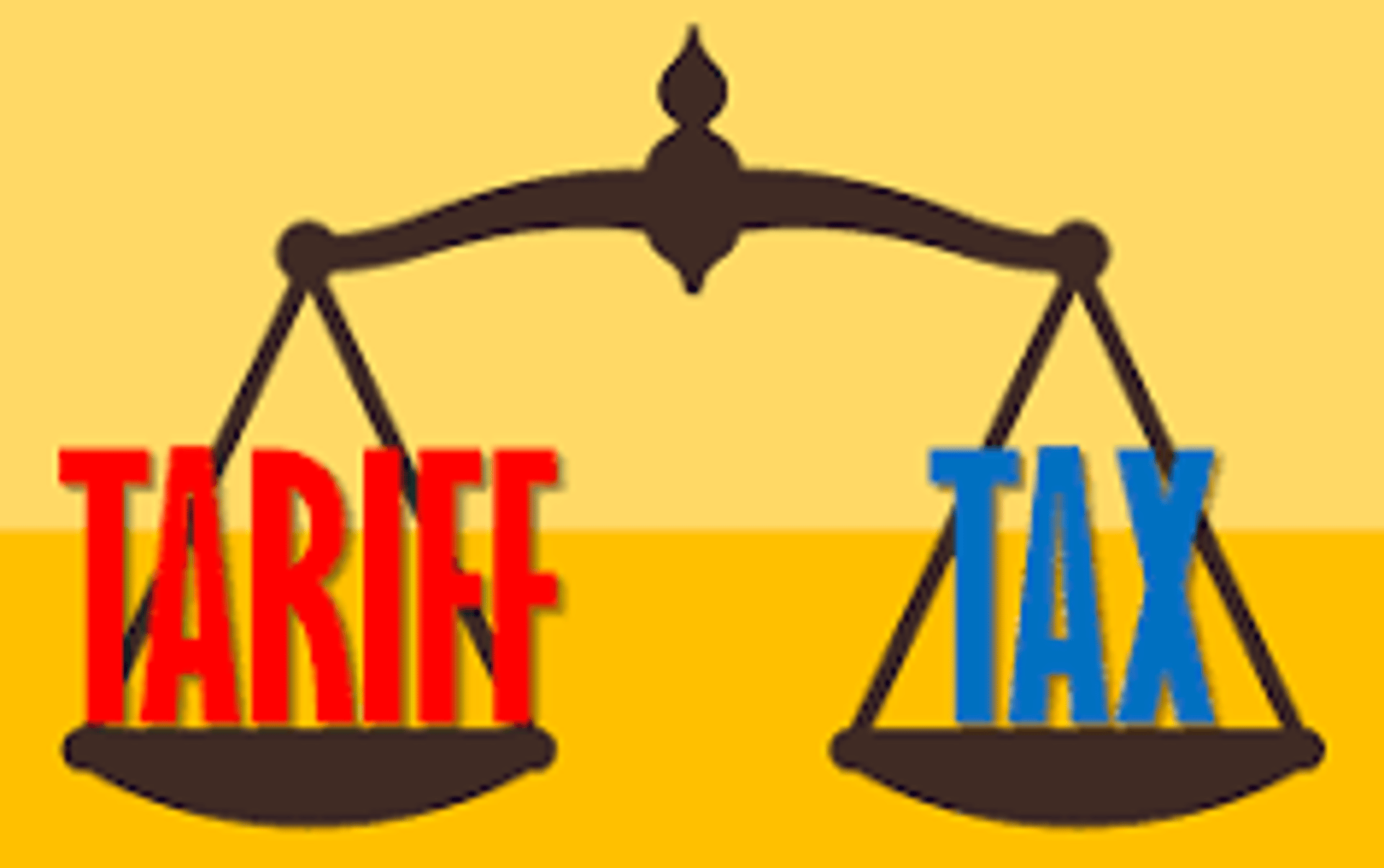Voices Against Starvation in Gaza: Join Our Ongoing Series
FEATUREDCULTUREACTIVISM


Understanding the Crisis
The humanitarian crisis in Gaza has reached alarming levels, where starvation and poverty are becoming increasingly prevalent. In recent months, there has been a growing concern globally regarding the severe violations of human rights experienced by the Palestinian people. The importance of raising our voices against such injustices cannot be overstated—especially when considering the acute need for humanitarian aid and support.
A Call to Action
Barbara Pretzer, a dedicated advocate for human rights, is inviting you to join an ongoing podcast series focused on the starvation occurring in Gaza. This initiative aims to amplify the voices of those who are suffering, highlighting the urgent need for action to address the ongoing humanitarian crisis. During the podcast, listeners will have the opportunity to hear first-hand accounts from individuals affected by starvation, understand the complexities of the situation, and learn how they can contribute to meaningful change.
Your Voice Matters
Every voice counts in the fight against starvation and oppression. As we strive to spotlight the plight of those in Gaza, it is crucial that we express our outrage and empathy. We encourage you to participate actively in this series, sharing your thoughts and engaging in discussions that can help elevate awareness and drive action. By joining us, you will not only gain insight into the struggles faced by many but also become part of a community dedicated to advocating for change.
In conclusion, the ongoing situation in Gaza is a humanitarian tragedy that demands attention and action. Your involvement in our podcast series can play a pivotal role in influencing public awareness and policy change. Together, let us raise our voices against starvation and draw the world’s attention to this pressing matter.
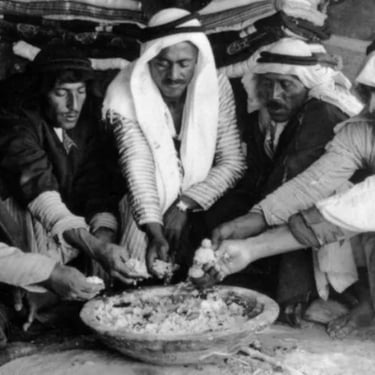

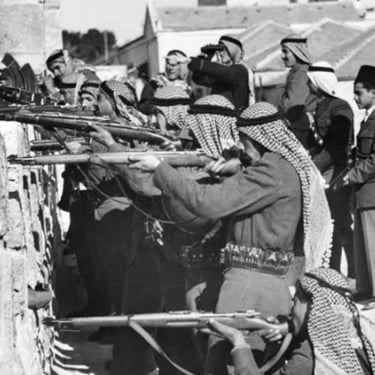

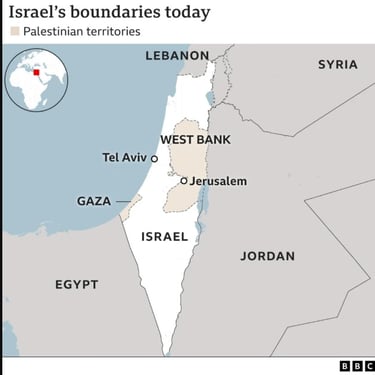
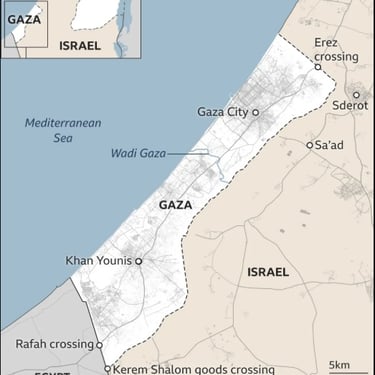
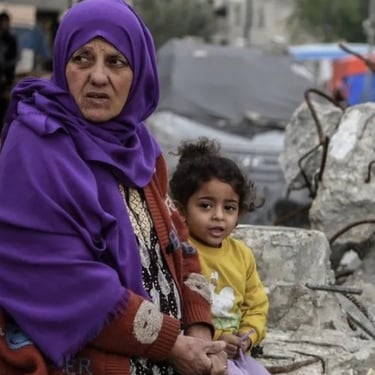
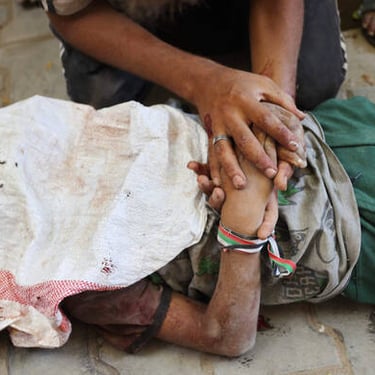
Understanding the Crisis
Israel and the Palestinians: History of the conflict explained 8 August 2
The conflict between Israel and the Palestinian people is one of the longest-running and most violent disputes in the world. Its origins go back more than a century.
There have been a series of wars between Israel and Arab nations. Uprisings - called intifadas - against Israeli occupation, and reprisals and crackdowns by Israel have also taken place.
The consequences of the historic dispute over issues including land, borders and rights are still being felt, and include the latest war between Israel and Hamas in Gaza.
What was Israel before 1948 and how was it created?
Britain took control of the area known as Palestine in World War One, following the defeat of the Ottoman Empire, which had ruled that part of the Middle East.
An Arab majority and a Jewish minority lived there, as well as other ethnic groups.
Tensions between the Jewish and Arab populations deepened when the UK agreed in principle to the establishment of a "national home" in Palestine for Jewish people - a pledge known as the Balfour Declaration.
Jews had historical links to the land, but Palestinian Arabs also had a claim dating back centuries and opposed the move. The British said the rights of Palestinian Arabs already living there had to be protected.
Between the 1920s and 1940s, the number of Jews arriving grew, with many fleeing persecution in Europe. The murder of six million Jews during the Holocaust gave added urgency to demands for a safe haven.
The Jewish population reached 630,000, just over 30% of the population, by 1947.
In 1947, against a backdrop of growing violence between Jews and Arabs - and against British rule - the United Nations (UN) voted for Palestine to be split into separate Jewish and Arab states. Jerusalem would become an international city.
No Arab nations supported this. They argued the plan gave the Jews more of the land, even though their population was smaller.
Britain abstained. It decided to withdraw and to hand the problem to the UN at the end of 14 May 1948.
Jewish leaders in Palestine declared an independent state known as Israel hours before British rule ended. Israel was recognised by the UN the following year.
What was the 1948 Arab-Israeli war?
The day after Israel declared independence, it was attacked and surrounded by the armies of five Arab nations.
The conflict came to be known in Israel as its war of independence.
A Haganah (Jewish Underground) fighter just before the start of the Israeli war of independence in 1948
By the time the fighting ended with an armistice in 1949, Israel controlled most of the territory.
Agreements left Egypt occupying the Gaza Strip, Jordan occupying the West Bank and East Jerusalem, and Israel occupying West Jerusalem.
About 750,000 Palestinians fled, or were forced from, their homes on land which became Israel and ended up as refugees.
The event is known in Arabic as the Nakba (Catastrophe).
Arab Legion soldiers fire on fighters of the Haganah, the Jewish Agency self-defence force, in March 1948
In the years that followed, hundreds of thousands of Jews left, or were expelled from, Muslim majority countries across the Middle East and North Africa, with many going to Israel.
What was the 1967 Middle East war?
What is known as the Six-Day War changed boundaries in the Middle East and had major consequences for Palestinians.
The war saw Israel fight Egypt, Syria and Jordan.
It started when Israel, fearing an attack by Egypt and Syria, launched a strike on Egypt's air force.
By the time the fighting ended, Israel had captured the Sinai Peninsula and Gaza from Egypt, most of the Golan Heights from Syria, and East Jerusalem and the West Bank from Jordan.
About a million Palestinians in the West Bank, Gaza and East Jerusalem came under Israel's control.
Israeli military commanders arrive in East Jerusalem during the Six-Day War in 1967
Israel's occupation of these areas has lasted until this day.
Israel signed a peace treaty with Egypt in 1979 and returned the Sinai.
It annexed East Jerusalem and the Golan Heights, making them part of Israel, although this has not been recognised by most of the international community.
What is the status of the West Bank now?
The West Bank - land between Israel and the River Jordan - is home to an estimated three million Palestinians.
Along with East Jerusalem and Gaza, it is part of what are widely known as the Occupied Palestinian Territories.
The Palestinians have always opposed Israel's presence in these areas and want them to be part of a future independent state, something backed by the vast majority of the international community.
Israel still has overall control of the West Bank, but since the 1990s, a Palestinian government - known as the Palestinian Authority - has run most of its towns and cities.
There are about 160 Israeli settlements, housing about 700,000 Jews, in the West Bank and East Jerusalem.
Palestinians want all Israeli settlements to be removed and they are considered illegal under international law.
However, Israel's government disputes this. It says the biggest settlements at the very least are permanent and that all settlements are rooted in its historical rights.
It does not recognise the right of the Palestinians to have their own state and argues that the West Bank is part of the Israeli homeland.
The Israeli government announced plans to expand settlements after coming to power in 2022. It says the creation of a Palestinian state would be a threat to Israeli security.
In July 2024, the top court of the UN, the International Court of Justice (ICJ), said that Israel's continued presence in the Occupied Palestinian Territories is illegal. It said that Israel should withdraw all settlers and that it was in breach of international agreements on racism and apartheid.
There has been a sharp escalation in attacks by settlers against Palestinian villages since the 7 October 2023 Hamas attack on Israel.
According to a report by the UN Office for Humanitarian Affairs, there were 2,208 attacks by settlers against Palestinians resulting in casualties or property damage between January 2024 and June 2025.
What is the dispute over Jerusalem?
Israel and the Palestinians both claim Jerusalem as their capital.
Israel, which already controlled West Jerusalem, occupied East Jerusalem in the 1967 war and later declared the entire city its permanent capital. It says Jerusalem cannot be divided.
The Palestinians claim East Jerusalem as the capital of a future Palestinian state.
Most of the population of East Jerusalem is Palestinian, only a small minority of whom have chosen to become Israeli citizens.
Holy sites in Jerusalem are at the centre of the Palestinian-Israeli conflict. The most sacred site - known to Muslims as Al Aqsa Mosque compound, or Haram al-Sharif (Noble Sanctuary), and to Jews as Temple Mount - lies in East Jerusalem.
The UN considers East Jerusalem to be Palestinian land occupied by Israel.
What has happened in the Gaza Strip?
The Gaza Strip is a stretch of land surrounded by Israel, Egypt and the Mediterranean Sea. It is 41km (25 miles) long and 10km wide.
Home to about 2.1 million people, it is one of the most densely populated places on Earth.
Even before the latest war between Israel and Hamas, Gaza had one of the highest unemployment rates in the world. Many people were living below the poverty line and depending on food aid to survive.
Gaza's boundaries were drawn up as a result of the 1948 Middle East war, when it was occupied by Egypt.
Egypt was driven out of Gaza in the 1967 war and the Strip was occupied by Israel, which built settlements and placed Gaza's Palestinian population under military rule.
In 2005, Israel unilaterally withdrew its troops and settlers from Gaza, though it retained control of its shared border, airspace and shoreline, giving it effective control of the movement of people and goods.
The UN still regards Gaza as Israeli-occupied territory because of the level of control Israel has.
Hamas won Palestinian elections in 2006, and ejected its rivals from the territory after intense fighting the following year.
Israel and Egypt imposed a blockade in response, with Israel controlling most of what was allowed into the territory.
In the years that followed, Hamas and Israel fought several major conflicts - including those in 2008-09, 2012 and 2014. A major conflict between the two sides in May 2021 ended in a ceasefire after 11 days.
Every round of fighting has seen people killed on both sides, the vast majority of them Palestinians in Gaza.
On 7 October 2023, Hamas fighters launched an assault from Gaza, killing about 1,200 people in Israel and taking 251 hostages.
This triggered a massive Israeli military offensive, by land, sea and air.
More than 61,000 people have been killed, according to the Hamas-run health ministry.
In July, the UK and 27 other nations, including Australia, Canada, France, Italy, Japan, New Zealand and Switzerland called for an immediate end to the war. They said the suffering of civilians had "reached new depths".
The same month, UN-backed experts warned the "worst-case scenario of famine is currently playing out" in the Gaza Strip. The Integrated Food Security Phase Classification (IPC) said there was mounting evidence that widespread starvation, malnutrition and disease were driving a rise in hunger-related deaths.
UN agencies had already warned of man-made, mass starvation in Gaza. They have blamed the crisis on Israel, which controls the entry of all supplies to the territory.
Israel has insisted that there are no restrictions on aid deliveries and that there is "no starvation".
Which countries recognise a Palestinian state?
The State of Palestine is currently recognised by 147 of the UN's 193 member states.
Known as the State of Palestine at the UN, it has an official status of "Permanent Observer State", which gives it a seat but not a vote.
Some European countries, along with the US, do not recognise a Palestinian state and have said they will only do so as part of a long-term political solution to the conflict in the Middle East.
However, in July France announced that it would recognise a Palestinian state in September, .
UK Prime Minister Sir Keir Starmer said it would also recognise a Palestinian state in September unless Israel takes "substantive steps to end the appalling situation in Gaza".
Canada said it too would formally recognise a Palestinian state at the upcoming UN General Assembly. Prime Minister Mark Carney said the move depended on democratic reforms from the Palestinian Authority.
Israel says it has a historical right to the West Bank and opposes an independent Palestinian state, saying it would pose an unacceptable threat.
What about Palestinian refugees?
There are about 5.9 million Palestinians registered by the UN as refugees.
They are descendants of the Palestinians who fled or were forced from their homes on land which became Israel in the 1948-49 Middle East war.
Most live in Jordan, the Gaza Strip, the West Bank, Syria and Lebanon.
Palestinians insist on the right of refugees to return but Israel has refused this. It criticises the UN's Palestinian refugee agency, Unrwa, for allowing refugee status to be inherited by successive generations.
What is the two-state solution?
The "two-state solution" is an internationally backed formula for peace between Israel and the Palestinians.
It proposes an independent Palestinian state in the West Bank and Gaza, with East Jerusalem as its capital. It would exist alongside Israel.
Israel rejects a two-state solution. It says any final settlement must be the result of negotiations with the Palestinians, and statehood should not be a precondition.
The Palestinian Authority backs a two-state solution but Hamas does not because it is opposed to the existence of Israel.
Hamas says that it could accept an interim Palestinian state based on 1967 de facto borders, without officially recognising Israel, if refugees were given the right to return.
Earlier efforts to settle the conflict saw Israel and Palestinian leaders sign a deal called the Oslo Peace Accords, in 1993. This was intended to provide a framework for peace talks. However, talks eventually collapsed with each side blaming the other.
Netanyahu is now the problem — for the region and the world
Short Url: 21 Aug 2025 02:08:55 GMT9
Israeli Prime Minister Benjamin Netanyahu had always seen himself as a man on a historic mission: to bury Palestinian ambitions of a state of their own and extend Israel’s boundaries beyond historical Palestine. His rise to the helm in the late 1990s came in the wake of the Oslo Accords, which he considered a betrayal of ultra-nationalist Zionism as preached by Ze’ev Jabotinsky, the Russian-born Zionist activist and poet.
As a firebrand politician, Netanyahu galvanized both ultra-nationalist and ultra-religious Israelis, who until then played a minor role in Israeli politics. But he was able to charm the right and far right because of his ability to convince all that his maximalist designs, seen then as improbable, were possible.
His ability to paint his radical policies as mainstream won him the unofficial title of “King of Israel,” and eventually made him the longest-serving premier in the country’s history. Until Oct. 7, 2023, Netanyahu rarely presented himself as a religious as well as a political leader. But since the notorious Hamas attack, Bibi, as he is often called, referred to the Torah several times to portray Israel’s Palestinian enemies and the Hebrew state’s modern wars. The purpose was always to whip up support among the extremists.
The war on Gaza came as a personal relief for Netanyahu. Before the Hamas attack, his coalition was facing nationwide protests against his attempt to subjugate the judiciary and remove the corruption charges against him. His government was on the verge of collapse, but then came the war.
There is a consensus in Israel today that almost two years of war in Gaza have failed to deliver its stated objectives. Even the Israeli military is now admitting that it has run out of targets. Gaza is in ruins. Hamas’ military capabilities have been destroyed. Its leadership structure was decimated. Those who fight are isolated cells that can never be completely wiped out.
On the other hand, Israeli society is tired. Hostages remain in the hands of their captors. The cost of the war has been enormous even with the help of American taxpayers whose government has supplied Israel with tens of billions in munitions. And to top it all, the entire world is now against the conflict, and against Israel and its genocidal practices in Gaza. Western governments are openly denouncing Israeli violations in Gaza — the starvation, killing of children, dehumanization of Palestinians, ethnic cleansing, and multiple war crimes.
Only one man wants the war to go on and on: Netanyahu. His survival depends on keeping the war machine running. But there is more. He now sees himself on a spiritual mission to fulfill the ambition of a “Greater Israel.” His recent statements have shocked Israel’s neighbors, especially those with which Israel had signed peace treaties. What does “Greater Israel” mean?
Only one man wants the war to go on and on.
Osama Al-Sharif
For years, Netanyahu had warned of Iran’s proxies in the region as an existential threat. He warned of Tehran’s nuclear ambitions and convinced US President Donald Trump that Iran was only months away from building a nuclear bomb. He had already managed to thwart the Obama nuclear deal. Now he convinced Trump to strike Iran’s nuclear infrastructure.
The 12-day war between Israel and Iran was the culmination of a series of regional blows that Israel was able to deal to its enemies: Hezbollah in Lebanon, the Assad regime in Syria, the Houthis in Yemen, and the nuclear program of Iran. No one could have imagined such geopolitical fallout in less than two years.
Netanyahu has become intoxicated with power. Why not: Oct. 7, 2023 has changed everything and made the improbable possible. Netanyahu is now the only Israeli leader whose military flies, uncontested, over Lebanon, most of Syria, Iraq, Yemen, and parts of Iran. Why would he not speak of himself as a man on a historic mission with a connection to “Greater Israel”?
But such triumph did not come without a hefty price. Yes, Israel has emerged as a regional behemoth, one that wants to change the map of the region, destabilize its neighbors, and carry out nefarious projects. But its image across the globe has been tarnished beyond repair. Most of its Western allies are now denouncing its policies in Gaza and the West Bank.
Netanyahu is also breaking Israel’s steadfast ties to its most important ally, the US, without which his country cannot survive. Israel has become a pariah state in the eyes of a majority of Americans from both main political parties. The dynamics of the US-Israel relationship are changing, and while the outcome may not appear soon, it will show at some point.
The Israeli leader will find ways to keep the genocidal war going. He will push Trump to recognize the annexation of the West Bank. His far-right partners will force him to defund the Palestinian Authority and partition what remains of the West Bank, while planning the forced displacement of Palestinians.
Netanyahu’s narcissistic view of himself as a man on a mission has already damaged Israel from within. It has discredited the message of the Abraham Accords and the prospects of peace in the region. For many Israelis, Netanyahu had failed to deliver victory in Gaza because of his selfish reasons, while sacrificing the hostages. And when many influential countries announce their recognition of a Palestinian state, come September, Netanyahu will retaliate and make things worse for Israel, the Palestinians, and the entire region.
Trump is wrong to assume that the occupation of Gaza City will destroy Hamas and end the war. On Sunday, almost a million Israelis took to the streets to express their rejection of Netanyahu’s latest gambit.
As one European official put it: “Netanyahu himself is now the problem.” This is the shared sentiment of leaders across the world as well as a majority of Israelis. Netanyahu may think of himself as a man on a mission, but that is not how the world sees him. A man who sanctioned the killing of over 60,000 Palestinians, and threatens to kill and displace even more, is a criminal who should face justice.
• Osama Al-Sharif is a journalist and political commentator based in Amman
Israel is losing the war of algorithms over Gaza
06 Aug 2025 02:08:09 GMT9
Away from the real world and the killing fields of Gaza, another war rages between pro-Palestine activists on the one hand and Israel’s high-tech military, supported by IT giants primarily from the US, on the other. This conflict is taking place mainly on social media platforms across the digital sphere in a bid to sway global public opinion. The good news is that Israel is losing the war of algorithms.
Immediately after the Oct. 7, 2023, Hamas attacks, Israel’s propaganda machine kicked in to distort, exaggerate, and lie about the scale of the atrocities that took place on that day. The objective was to mobilize public opinion through mainstream Western media, by feeding them enough horror stories to justify Israel’s whole-scale retaliation against the people of Gaza under the banner of “Israel’s right to self-defense.”
Israel imposed a total shutdown of all news coming out of Gaza. It barred, as it continues to do today, all international media from entering the besieged enclave. The only version or narrative of what was taking place there was primarily through the well-established Israeli propaganda machine, the hasbara.
But while the Western mainstream media had no qualms about its reporters being barred from entering Gaza to carry out independent coverage of the war, they were happy to repeat and promote the Israeli narrative without verification. The only other source was and remains the tens of Palestinian journalists, native residents of Gaza, who were associated with Arab TV networks and many key Western news agencies and TV stations.
The onslaught on Gaza has been aired live by Arab TV networks, thanks to these Palestinian journalists, many of whom were deliberately targeted by Israel in order to silence them. As of late July 2025, at least 232 Palestinian journalists and media workers have been killed in Gaza since Israel launched its military campaign. That is the most significant number of journalists killed in a conflict since the Vietnam War.
Israel was winning the propaganda war by playing the victim, but then the tide began to change. While Western mainstream media looked the other way, Palestinian journalists and activists in the beleaguered strip started sharing videos and testimonies of the massacres on social media platforms. Initially, Israel used its influence to force platforms such as Facebook, Instagram, and X to ban and shadow ban pro-Palestine users, as well as remove content that exposed the atrocities taking place in Gaza. That tactic worked for a while, but then users began boycotting such platforms and heading to other platforms like TikTok, where pro-Palestine content was tolerated.
Social media has transformed global outrage into protests.
Osama Al-Sharif
Israel could have won the digital war with minimum losses, were it not for its leaders who doubled down and allowed the Israeli military to unleash the most destructive bombing of a residential zone since the Second World War. It was impossible, with such a high number of casualties, to hide the images of slaughtered babies, maimed children, and wailing parents. Israel could not lie about the blowing up of hospitals, schools, universities, and places of worship. The floodgates burst open, and the social media platforms caved in.
While Israeli jets bombed and destroyed more than 90 percent of Gaza, social media has irreversibly altered the global understanding of the genocide in Gaza. Today, the daily reality in Gaza is transmitted directly to the world by its victims.
Viral hashtags such as #FreePalestine or #GazaUnderAttack have mobilized millions, sidelining mainstream media and challenging the dominant Western portrayal of Israel as a democratic outpost and as a recurrent victim. Instead, for much of the world, Israel stands increasingly accused of operating as a Western colonial and apartheid state in the heart of the Middle East, charged with war crimes documented in real time.
Social media has transformed global outrage into protests on university campuses, boycotts against complicit corporations, and, crucially, legal action. For instance, evidence gleaned from soldiers’ posts and digital archives — often collected by grassroots actors — has been used by organizations and even states when filing cases at the International Court of Justice.
The trail of legal pursuit is now extending to IT companies that have enabled Israel to weaponize untested artificial intelligence to hunt down Palestinians. Gaza has become a testing ground for future weapons of mass destruction.
In response to pro-Palestinian posts on social media, Israel uses bots, particularly AI-powered fake or automated accounts, to influence pro-Gaza algorithms and social media narratives by amplifying pro-Israeli content and sowing doubt within pro-Palestinian discussions. These bots rapidly respond to pro-Palestinian posts with pro-Israeli comments, creating a swarm of replies that can flood social media platforms almost immediately after Palestinian content is posted. The accounts often follow similar patterns and try to appear almost human.
Even then, pro-Palestine supporters have developed a robust set of strategies to counter the influence and narratives pushed by pro-Israel AI bots. Activists and organizations such as Tahaqaq (Palestinian Observatory for Fact-Checking and Media Literacy), and other independent fact-checkers actively monitor social media for AI-generated disinformation. They quickly investigate viral images and videos, exposing those that are deep fakes or manipulated, thus preventing bots from distorting the narrative unchallenged.
Activists and digital rights groups often publish evidence of AI bot networks — sometimes created by companies like the Israeli firm STOIC — flooding platforms with pro-Israel messaging.
In this war of algorithms, Israel is losing ground daily, and every time its army commits a war crime in Gaza. The technology alliance it created has not worked, and it has lost the initial narrative.
Today, we see millions of people protesting every week in support of Palestine. Israel’s hold on Western politicians is loosening as governments and leaders become aware of the seismic change that is taking place in their constituencies.
The war of algorithms is not over, but Israel is no longer able to thwart the global conscience movement it created through its atrocities, and as it carries out this “first livestreamed genocide,” as it has been described.
• Osama Al-Sharif is a journalist and political commentator based in Amman. X: @plato010


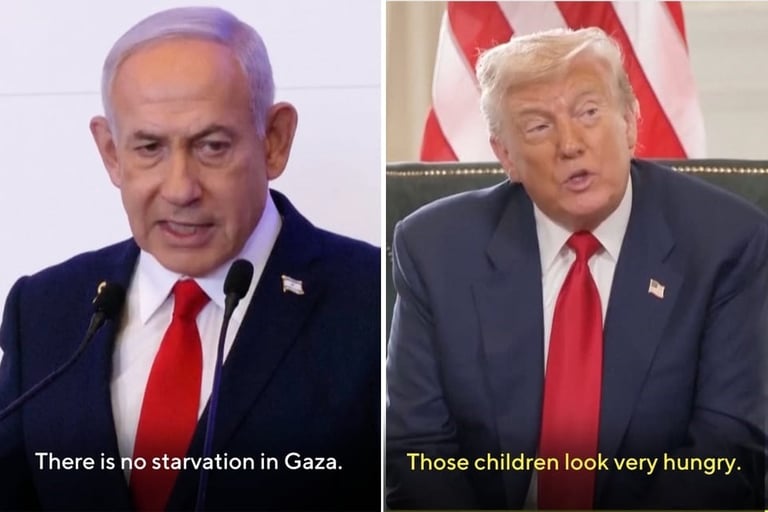

The Evil Ones! Destroying the People of Gaza.
It is not about Hamas. It;s about the land. When will Trump build a golf course and hotel?

